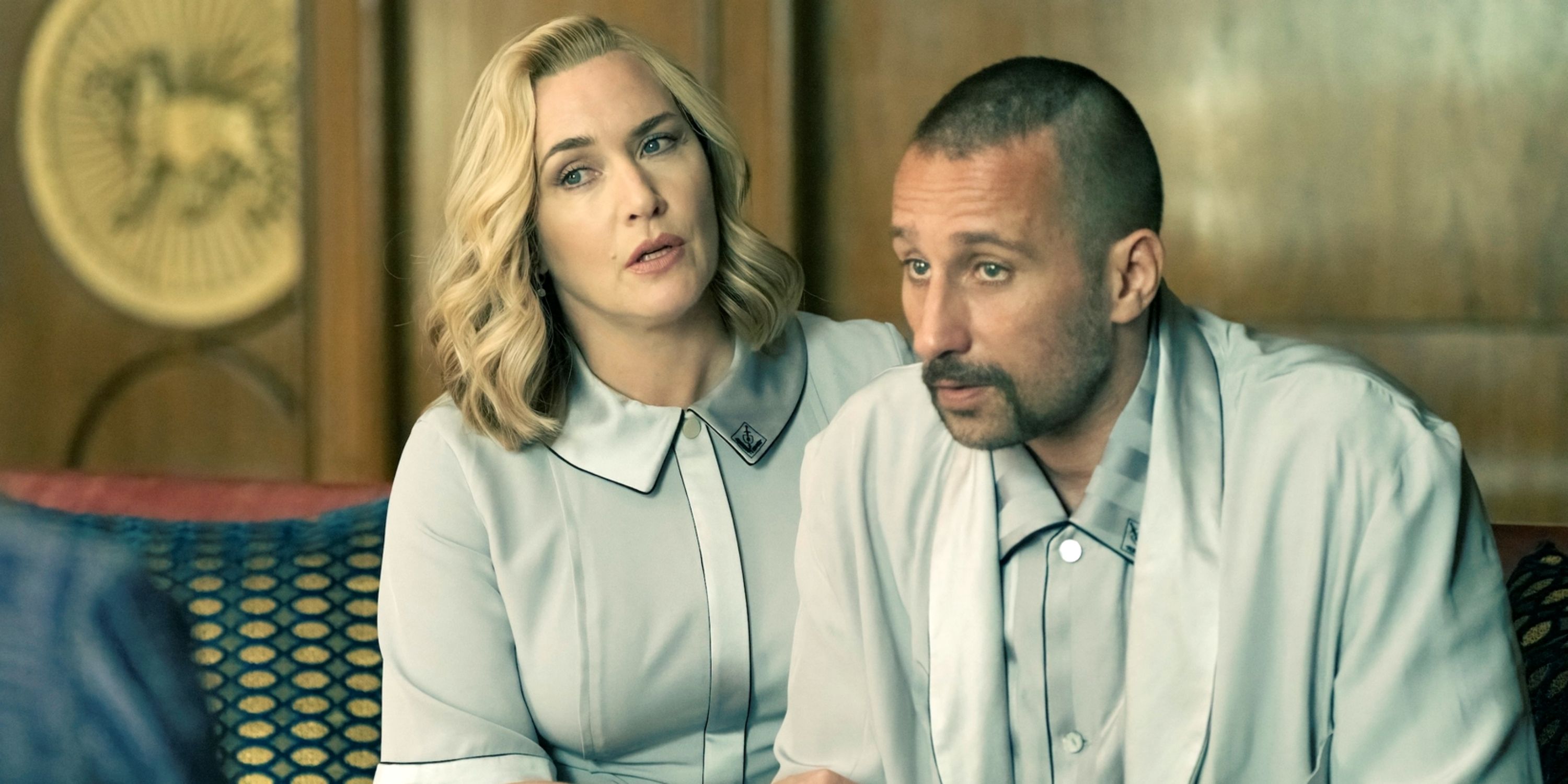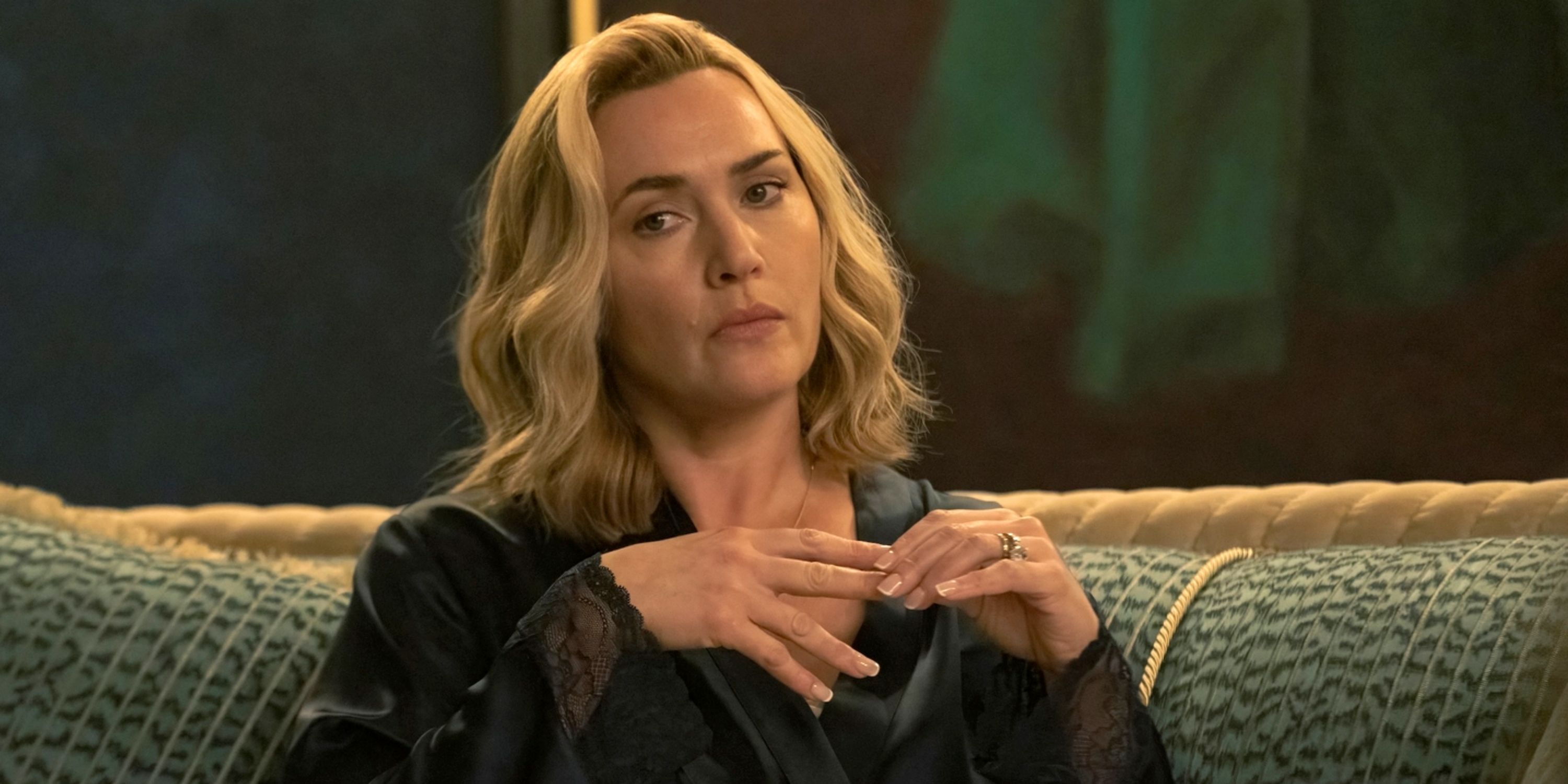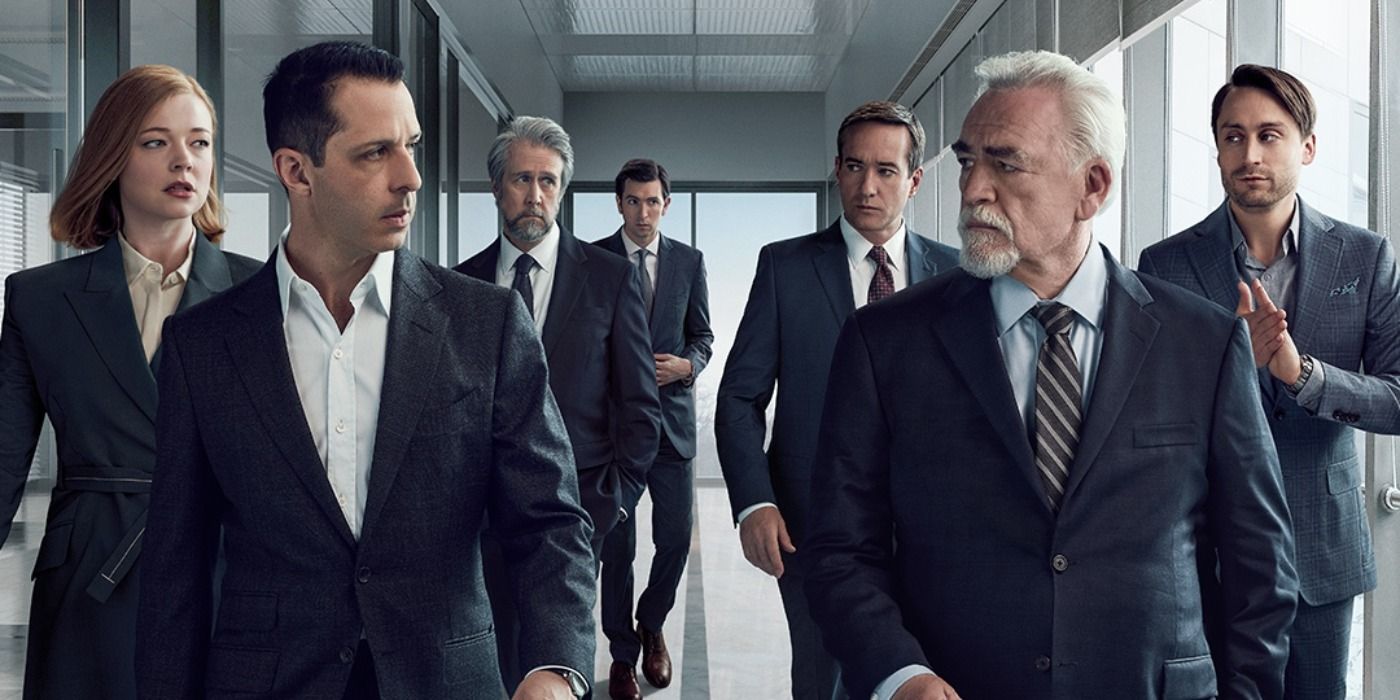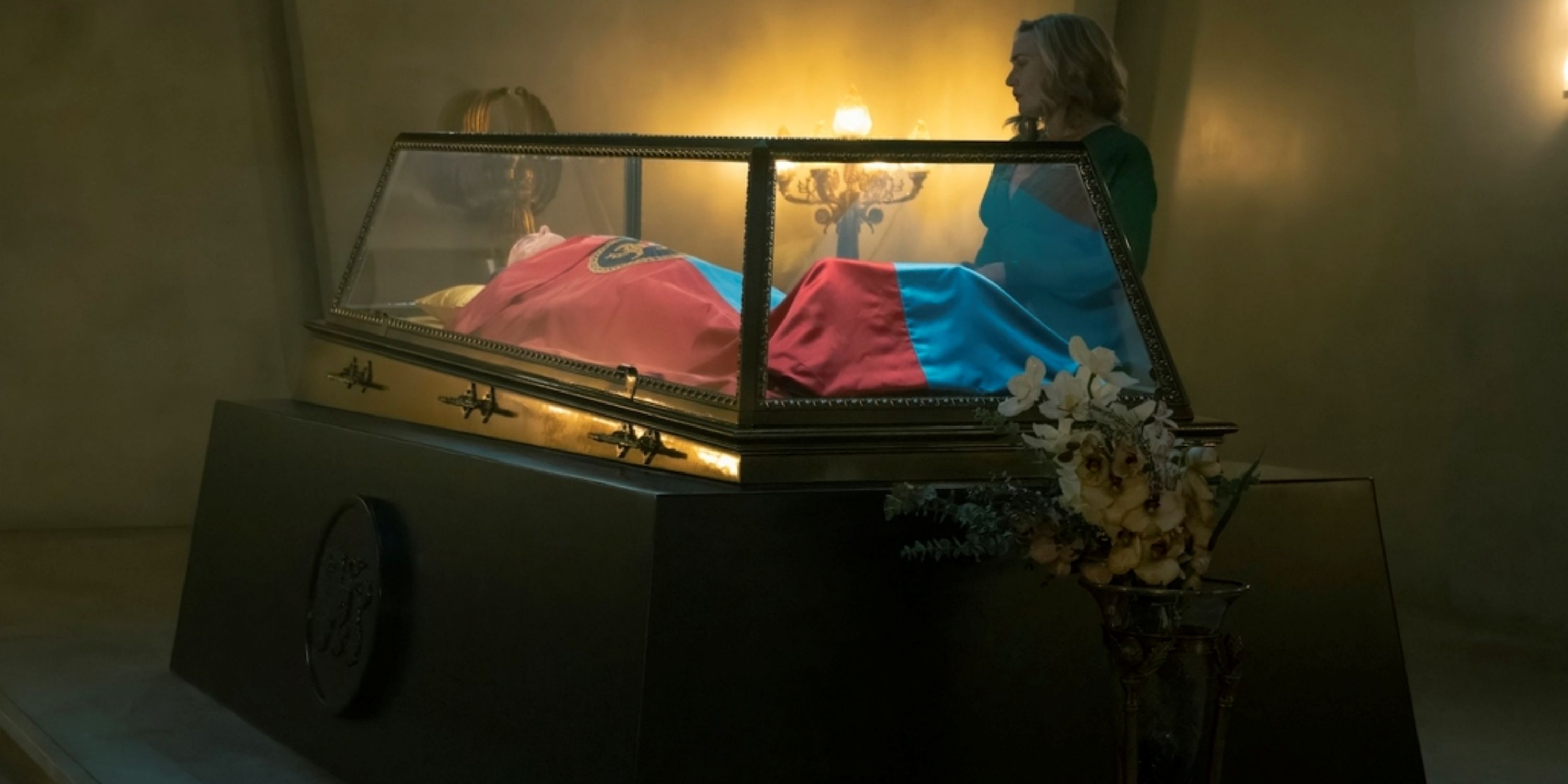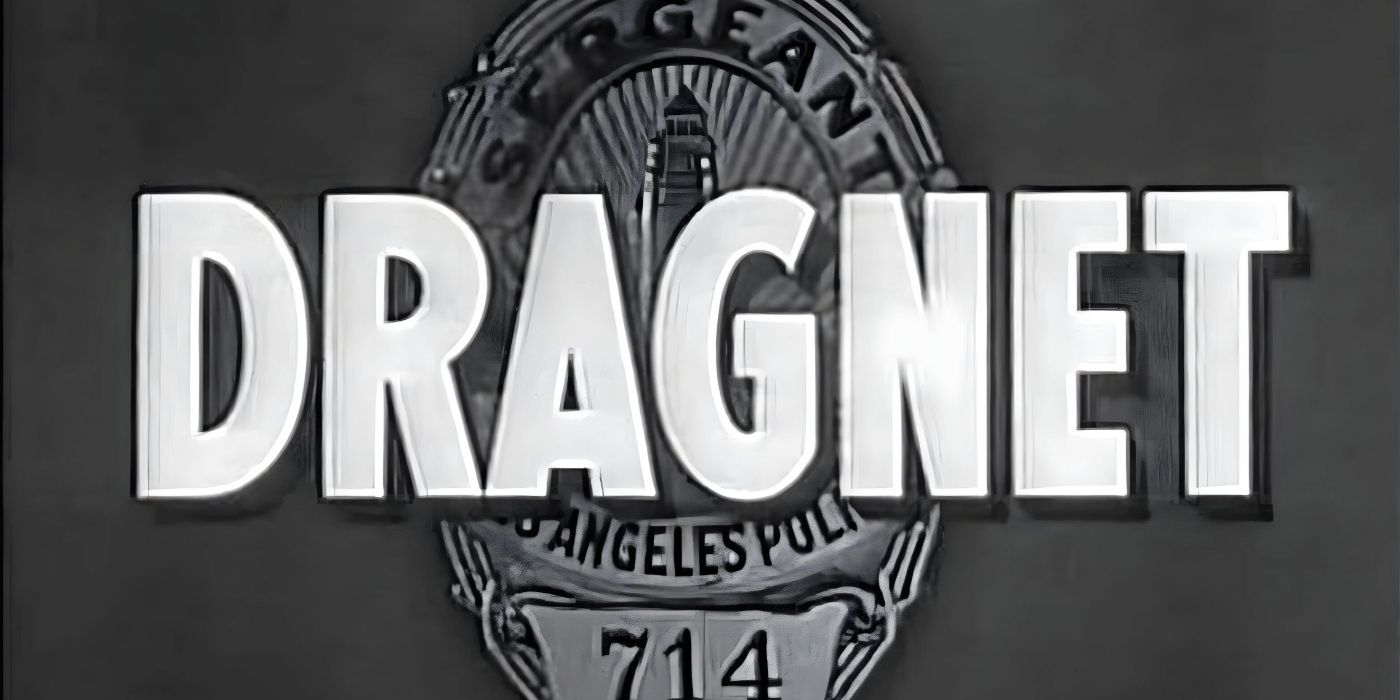[Editor’s note: The following contains major spoilers for The Regime.]
The Big Picture
- For the HBO series ‘The Regime,’ showrunner Will Tracy drew inspiration from various authoritarian regimes for the series’ portrayal, not wanting to focus on just one.
- Finding a balance between comedy and drama was inherent to the absurdity of Elena’s world.
- Elena’s deep conversations with the corpse of a loved one reveal her true thoughts and serve as a check on her character.
Over the course of the six-episode season of the HBO series The Regime, Chancellor Elena Vernham (Kate Winslet) became increasingly paranoid and unstable in her authoritarian rule over the Central European country she promised to bring together. When the civil war was brought to her doorstep and the palace walls were breached, Elena and her love Herbert Zubak (Matthias Shoenaerts) were forced to escape for their own survival. As everyone around her fell to the wayside, Elena had to decide just how far she was willing to go to hold onto the hard-fought power she’s given up so much for.
During this interview with Collider, showrunner Will Tracy, who was also a writer and executive producer on Succession, talked about pulling from a variety of authoritarian regimes for the series, why it’s better not to be influenced by current events, finding the perfect balance of comedy and drama, what he learned from the time he spent working with Succession showrunner Jesse Armstrong, how a Chicago song came to bookend the series, why Elena seems to only be able to truly be herself with the corpse of a loved one, and whether he believes Elena has learned anything by what she’s been through.
The Regime
An authoritarian regime is about to unravel. Follows a story of one year within the walls of its palace.
- Release Date
- March 3, 2024
- Creator
- Will Tracy
- Seasons
- 1
- Streaming Service(s)
- HBO
‘The Regime’s Showrunner Pulled From Various Dictators When Shaping Chancellor Elena Vernham
Collider: I read that the idea for this was sparked by you spending time reading about autocracies and authoritarian leaders. Were there specific regimes from history, or leaders, or dictators that you were inspired by? Was there one in particular, or was it just pulling from everything because they’re all equally as horrendous?
WILL TRACY: I pulled from all over, in terms of what I was reading, and not even things I directly read for research for the show. My brain is a weird repository of information about these figures from books that I’ve read, dating back 20 years now. People will probably recognize bits of Stalin or Ceausescu or Assad. The truth is, once I did a lot of this research, I then started to have a little bit of anxiety about not wanting the audience to feel as though the show or Elena was an analog of anyone, in particular. You have to do that, at a certain point. You have to put the research aside, or else you feel as though you’re a hostage to the research, or you’re carrying that baggage. Really, what I wanted to do was to build my own world and build my own country. I wanted Elena to feel like a head of state that we haven’t quite seen before.
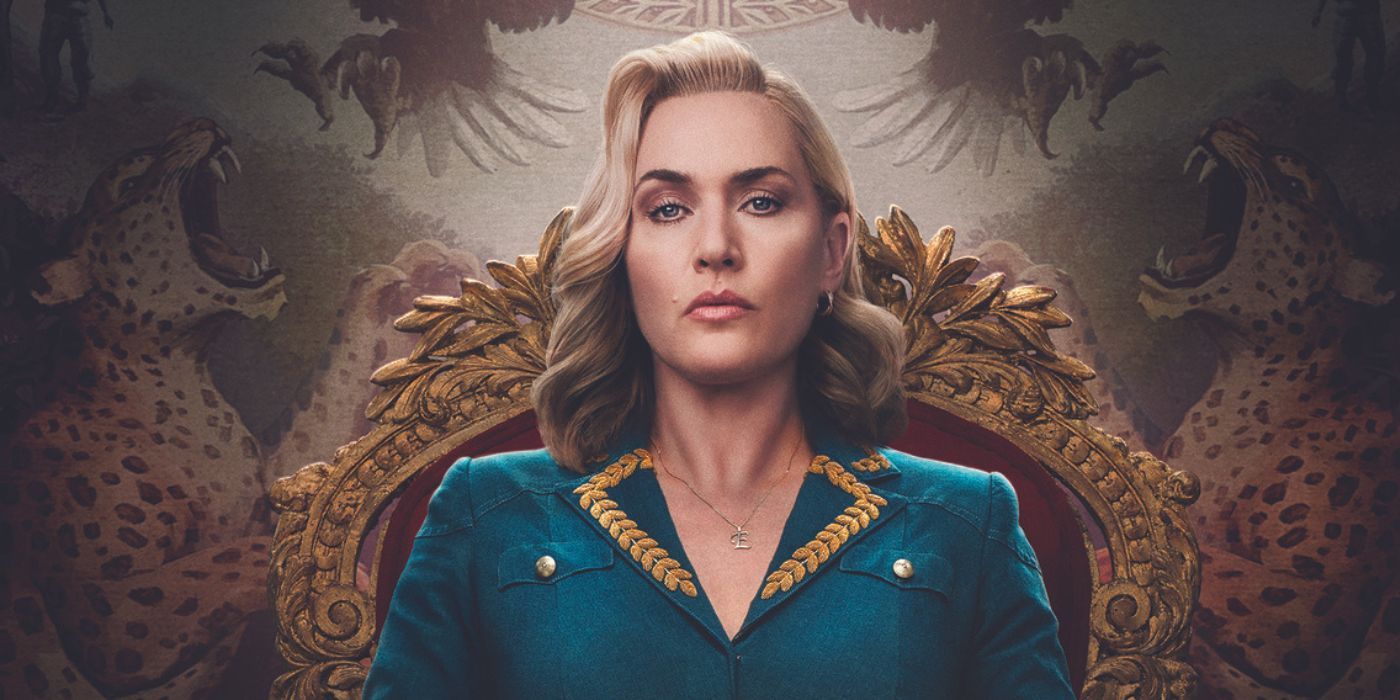
Is HBO’s ‘The Regime’ Based on Any Real-Life Dictators?
The HBO miniseries tells a fictionalized story that is somewhat rooted in truth.
Were there any specific events that inspired you because they were so wild, you couldn’t believe they actually happened?
TRACY: Certainly, there are some bits at the end of the Ceausescu regime that have a bit of overlap with the end of the series. When the veil finally drops on some of these regimes, the end game of them can be quite absurd. While we were in production, things would happen in the real world, and some people think that, if something happens in the real world that relates to or some somehow parallels your story, the writer might think, “Oh, yes, what a gift!” But for me, it was like, “Oh, no.” For a lot of writers, the real feeling is, “Oh, shit, how do we distance ourselves from that?” Especially while you’re in production, you never wanna feel like something happens, like Ukraine for instance, where the show is gonna come out and it feels like we’re behind the wave, or that people are gonna think that we were explicitly trying to do that when, in fact, the show was written before the Ukraine invasion even happened. You actually have to end up doing a little bit of work to fine tune the scripts, just to make sure that the story you’re telling is different. And then, once the show comes out, if things happen that resemble the show, then that’s gravy.
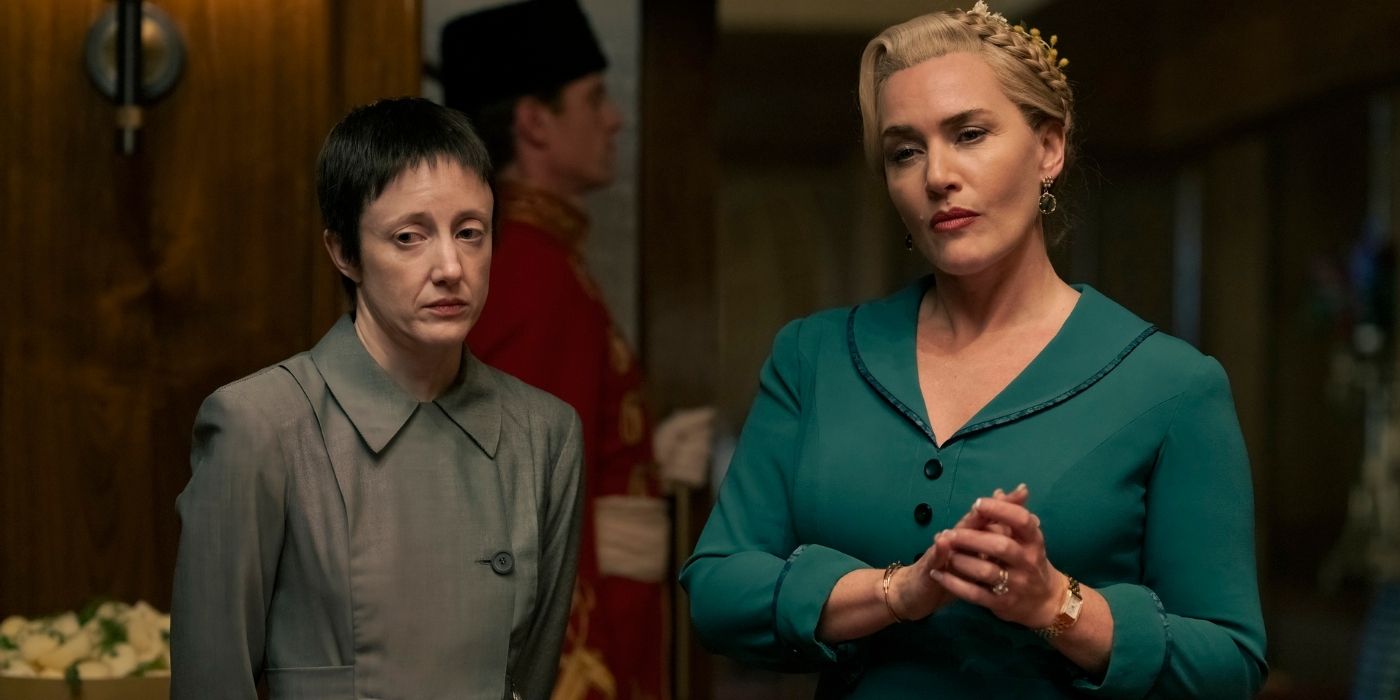
‘The Regime’s Best Character Isn’t Who You Think
This Oscar-nominated actress is quietly stealing scenes in HBO’s new drama series.
What was it like to find the balance between the comedy and the drama in this? Did it feel like walking as fine of a tightrope between the two, as it feels like as the viewer watching it?
TRACY: Yes, although it was not as hard as you might think because of the world and the subject matter and because of who Elena is. Like all these real-life figures, she’s such an extremely powerful, but isolated figure, with such unlimited access to resources that she can create her own reality, and her version of reality has to become everyone else’s reality who surrounds her. And so, you end up with these funny situations where essentially someone is saying, “The sky is green,” and “Two plus two equals radio.” And people have to believe it and they have to parrot it, and they have to put it out through state media, and everyone has to believe that story until she gets tired of it and moves on to a new story. That, to me, is inherently funny. You can’t write a straight version of that. It’s just inherently absurd. So, in a way, that balance between comedy and tragedy took care of itself because it’s right there and the comedy is unavoidable. What we had to do, I felt, was just not put too fine a point on it. We just had to play that absurd reality as straight as we could. You don’t need to embellish it with too many jokes. That is funny on its own. Dark comedy and satire is built into the premise.
‘The Regime’s Creator Wanted to Emulate What He Learned From His Time on ‘Succession’
Your career as a writer has come in strong, between The Menu, Succession, and The Regime. Was there anything that Succession creator Jesse Armstrong did or said that you wanted to emulate from the time that you spent on that series?
TRACY: Everything. Probably everyone who has worked with Jesse is hoping to become Jesse in some way, not just as a writer, but also the way he runs a room and the way he talks with collaborators. He’s also just an enormously generous and kind human being. And so, there were many things that I wanted to emulate. There’s somewhat an anxiety of influence there, in a way, because Succession became such a phenomenon. While I was finishing writing [The Regime], we were doing the last season of Succession, which then became this colossus. It’s hard trying to make a show in the shadow of that, so the lesson I took was just do your own thing. Jesse taught me a lot about storytelling and writing, and you can tell that The Regime was written by someone who wrote for Succession. And yet, in many ways, I made a conscious effort to not compete with it and to do something that was stylistically different. It’s dreamier, it’s more stylized, it’s more composed, and it’s weirder. It’s an invented country that’s not America. It’s a love story, as well. That’s the kind of thing that I could latch onto. I had all these lessons in storytelling from Jesse, but I’m confident that people won’t feel as though I tried to do a shitty version of Succession.
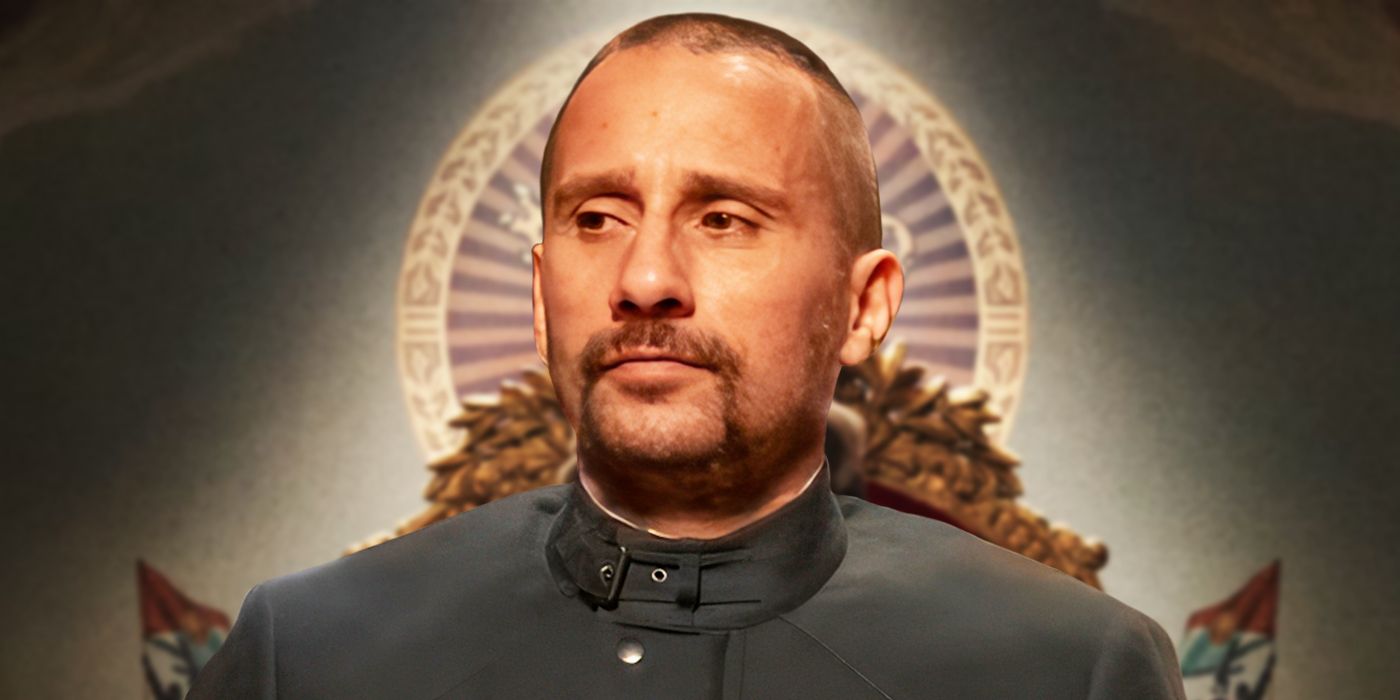
‘The Regime’s Matthias Schoenaerts on Shooting That Explosive Moment with Kate Winslet
Schoenaerts also has praise for ‘The Regime’s brilliant scripts and Winslet’s dedication to her role as Chancellor Elena Vernham.
Did you always know that you wanted to have Elena sing a Chicago song (“If You Leave Me Now”) in episode one, and then revisit it again at the end?
TRACY: Yeah. I didn’t know I was gonna bring it back at the end until later on, but that scene of her singing that Chicago song in the first episode was one of the first things I ever wrote for the show. It’s actually one of the few things that survived from the very, very, very first draft I ever wrote. I changed the story a lot. Originally, Zubak was just a sideline character, and then I made him the co-lead of the show. But that scene of her singing that song was always in there. I don’t know why I felt it had to be there. I don’t know why that’s something that stayed all the way through, but I just felt like that had to be in there and that it had to be that song, too. There was some talk of, “What about a different song?” And I was like, “No, it’s gotta be that one.” And then, I was also pretty adamant that it had to close the show, as well. It’s this so-called cheesy, maudlin soft rock ballad that we’ve all heard on the radio, but I’ve always had this weird affection for that kind of melody. I just always felt there was a way to take that same song and use it in a cringy or almost semi-ironic way in the first episode, and then have the exact same song, but it’s become strangely poignant by the end. That seemed interesting to me, and thankfully that made it through because I’m happy with that part of the show.
‘The Regime’s Dictator Can Only Speak Her Truth With a Corpse
Where did Elena’s need for having corpses to bare her soul come from? A therapist would have some very interesting things to say about her talking to the corpse of her father, and then to the corpse of the man that she loves. How did that come about?
TRACY: I think she’s someone who is told so often that she’s a goddess, she hears yes so often, she’s told that she’s very powerful, and she’s told that her reality is reality. This was a figure in her life who very much did not tell her those things. He told her exactly what he thought of her, and exactly how petty and conniving and unpromising she was, or how he found her. Once he’s gone, that’s the voice that’s still in her head. It really ends up being what she’s saying to herself because obviously he’s dead, and he can’t say anything to her. Everything that he’s saying to her is really what she’s saying to herself. What it means is that she gets the same genuflecting bullshit from everyone in her world, but she can go down there to that room in that mausoleum, the mask can fall, she can be herself, she can hear who she really is, and she can say what she’s really thinking. He’s a very useful device, in that way. There’s a way that those scenes could have ended up just being silly scenes. And I don’t wanna say they’re not, in a way, darkly funny and weird, but they’re not silly because they function as these temperature checks in every episode for where the character is at. We hear her talk so much good game and bullshit that it’s really useful to hear how she’s really feeling about all this. And Kate, especially, took those scenes very seriously.
Did it feel inevitable that, by losing her father’s corpse, she would have to then replace it with somebody else?
TRACY: Yeah. She needs someone down there who really knows her. By the end, he may be dead, but finally these two people really know each other. Dad’s gone, and now, in some way, there’s this healthier figure to be that voice in her head, but who’s also gonna make her feel great guilt. She can’t acknowledge that guilt to anyone else. In fact, publicly, she would probably tell people, “Herbert Zubak was a bad actor in my administration who tried to ruin me.” But Elena and Herbert know the truth, and it’ll probably come out down there in the mausoleum together.
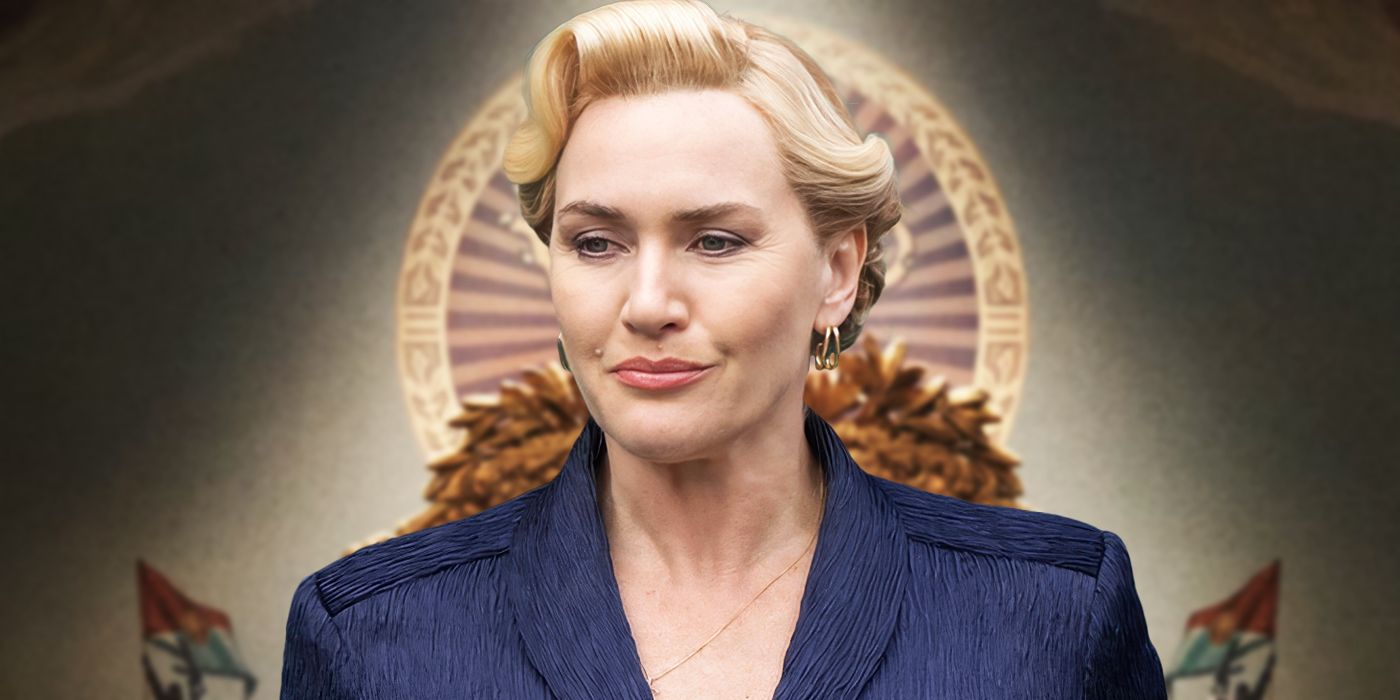
‘The Regime’s Kate Winslet Found the Road Map for Her Dictator Through Deep Daddy Issues
Oscar winner Kate Winslet also talks about ‘The Regime’s twisted romance between two social misfits who never should have fallen in love.
The material is there in the scripts, but when you get someone like Kate Winslet to bring it to life, were there things about her performance that changed things at all?
TRACY: I did what I could do, in terms of delineating who I thought the character was and what her world was, and then it’s up to Kate to fill in all the brilliant little detailed work that she did there, in terms of the look and the sound of the character. I knew, going in, that when you cast Kate Winslet, it’s not like, “Oh, she’s gonna come in and do her Kate Winslet thing.” What is the Kate Winslet thing? She’s different in everything. She does incredible work in every role, to bring a different look and feel and set of behavior and an emotional interiority to every character that she does, so you just let her do her thing. That’s certainly what I learned. She’s gonna figure all that out, and what she figured out was that all these world leaders that come along, these authoritarian types who come out of nowhere and form this cult of personality around them, often have a quality about them that’s off. They look funny, they sound funny, they’re weird, or people might even laugh at them when they first see them. But then, in their rise to power, they use those qualities to become a superstar, and they weaponize that stuff. And yet, they’re always afraid of being laughed, or they never forget that people laughed at them. And Kate would put so much work into those little details about Elena. You think, “Why is she doing that? That’s off. That’s strange.” She found these peculiar little details to fill the character out with that are just brilliant and so thematically central to who that character is.
It was fascinating to watch all the nuances she brought to this character, even in the portrayal of menopause.
TRACY: That’s right. The character likes to think of herself as a mother or a maternal figure, but then she threw in this little detail that was Kate’s idea, when she says, “It’s a pity that I couldn’t have given birth myself, but my posterior cervix and all.” She’s come up with some reason why she couldn’t have kids, even though the truth is that she probably didn’t want to deal with it. She doesn’t want the actual pain and responsibility of motherhood. She wants the easy shit.
Has ‘The Regime’s Dictator Learned Anything From Her Abuse of Power?
After everything, do you think Elena has had any growth and learned anything from what has happened?
TRACY: Yeah. She probably knows a bit more about the limits of her power, and also probably knows a little bit more about the way that her behavior can be self-defeating and the problems that she can get herself into. Will her behavior change? Will she be chastened by the experience? Will she actually be a different person? No. I think the truth is probably something more like what she says in that last scene that she has with Zubak, when they’re in bed together. I think it’s probably true of most people, where we like to tell ourselves that we go through all these massive changes. We say things like, “Oh, God, last year was the biggest, most life-changing, hardest year of my life, but I came out of it a different person.” But what ends up often being true is that, when you’re really confronted with something of existential weight, where the thing that you’ve always feared was gonna happen, and you’ve been putting off thinking about your whole life finally happens, oftentimes you react to it like no time has passed, and you’re that same hardwired person you always were. That’s true of Elena. Maybe it’s not true of everybody, but it’s certainly true of her.
The Regime airs on HBO and is available to stream on Max. Check out the trailer:
Watch on Max

